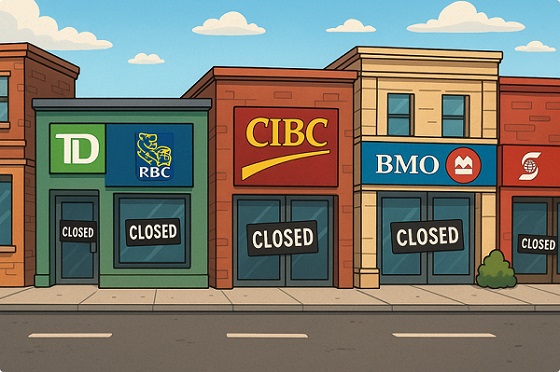Censorship Industrial Complex
Deep State Deconstruction: DOGE and Treasury

Who is Robert Malone  Robert W Malone MD, MS
Robert W Malone MD, MS
This is a game changer, and it’s scalable worldwide!
“Follow the money” takes on a new meaning when the bloodhound is an algorithm-powered web crawling bot designed to drill through internal government firewalls and map out redundancy, waste, and longstanding hidden internal influence networks established over decades.
What am I talking about?
Algorithmic Corruption Mapping
To the best of my ability, I am describing a key part of the DOGE toolkit based on the fragments of information that have recently been made public. If I understand correctly, what has been developed is almost infinitely scalable and could be readily deployed by allied governments to root out corruption. DOGE appears to be engaged in a truly radical experiment in government spending transparency and accountability by applying modern information technology tools to a problem set long believed to be intractable.
We will probably learn more during the DOGE Super Bowl commercial airing soon.
But before we go further down this particular rabbit hole, please take a moment to listen to Mike Benz describe the USAID disinformation program:
Getting back to DOGE and using algorithmic computational tools to map financial relationships, influence networks, and waste/fraud and abuse within the Federal Government by following the money.
To understand how this works, watch this video:
Source: EKO Loves You
Frankly, my sense is that the video above is at least in part a PsyOp, designed to scare the pants off of DeepState/Administrative State “Senior Executive Service” minions within the Treasury Department and across the Federal Bureaucracy.
But it lays out strategy and tactics that could well become transformational, and could not only provide a means to uncover organizational corruption but also to enable a level of transparency that will lead to an unprecedented support by citizens for the US federal government.
This vision looks to me like it could play a big role in Making America Great Again.
For more insight into what this all means, the changes it might bring, and the forces at play, I recommend this final video of a recent interview with internet/web browser pioneer Mark Andreessen:
Marc Andreessen: Trump, Power, Tech, AI, Immigration & Future of America | Lex Fridman Podcast #458
With the election of Donald Trump and his alliance with Elon Musk, there has been a power shift in the Matrix.
I can hardly wait to see what happens when these types of tools are let loose on the NIH, BARDA, FDA, CDC, USDA and the whole Federal Research and Development Enterprise. It will abruptly become much more difficult to build and sustain the types of mafia-like power networks that have sustained the likes of Anthony Fauci and his band.
MAGA/MAHA is bringing a new Sheriff to DC town. Expect the wailing to continue to increase for the foreseeable future.
Let’s go Bobby!
Thanks for reading Who is Robert Malone! This post is public so feel free to share it.
Who is Robert Malone is a reader-supported publication. To receive new posts and support my work, consider becoming a free or paid subscriber.
Censorship Industrial Complex
Decision expected soon in case that challenges Alberta’s “safe spaces” law

The Justice Centre for Constitutional Freedoms announces that the Alberta Court of Appeal will soon release its decision in a case challenging whether speaking events can be censored on the basis of potential “psychological harm” to an audience, infringing Charter-protected freedoms of expression (section 2(b) and peaceful assembly (section 2(c).
This case stems from the University of Lethbridge’s January 30, 2023, decision to cancel a speaking event featuring Dr. Frances Widdowson, who has frequently challenged established narratives on Indigenous matters.
In written argument filed in 2024 the University claimed it cancelled the event, in part, because it had obligations under Alberta’s Occupational Health and Safety Act to ensure a workplace free of “harassment” and free of hazards to “psychological and social wellbeing.”
Lawyers argue that these provisions (which might be described as a “safe spaces” law) compel employers to censor lawful expression under threat of fines or imprisonment.
Constitutional lawyer Glenn Blackett said, “Safe spaces provisions are a serious threat to Charter freedoms. Employers who don’t censor ‘unsafe’ speech are liable to be fined or even jailed. This isn’t just the government censoring speech, it is the government requiring citizens to censor one another.”
Given the University’s defence, lawyers asked the Court of King’s Bench of Alberta to allow an amendment to the lawsuit to challenge the constitutionality of the “safe spaces” laws. However, the Court denied the request. According to the Court’s apparent reasoning because the safe spaces law is worded vaguely and generally, it is immune from constitutional challenge.
Mr. Blackett says, “I think the Court got things backwards. If legislation infringes Charter rights in a vague or general way, infringements become impossible to justify – they don’t become Constitution-proof.”
Widdowson and co-litigant Jonah Pickle appealed the ruling to the Alberta Court of Appeal, which heard argument on Monday. A decision from the Court of Appeal is expected soon.
Banks
Debanking Is Real, And It’s Coming For You

From the Frontier Centre for Public Policy
Marco Navarro-Genie warns that debanking is turning into Ottawa’s weapon of choice to silence dissent, and only the provinces can step in to protect Canadians.
Disagree with the establishment and you risk losing your bank account
What looked like a narrow, post-convoy overreach has morphed into something much broader—and far more disturbing. Debanking isn’t a policy misfire. It’s turning into a systemic method of silencing dissent—not just in Canada, but across the Western world.
Across Canada, the U.S. and the U.K., people are being cut off from basic financial services not because they’ve broken any laws, but because they hold views or support causes the establishment disfavors. When I contacted Eva Chipiuk after RBC quietly shut down her account, she confirmed what others had only whispered: this is happening to a lot of people.
This abusive form of financial blacklisting is deep, deliberate and dangerous. In the U.K., Nigel Farage, leader of Reform UK and no stranger to controversy, was debanked under the fig leaf of financial justification. Internal memos later revealed the real reason: he was deemed a reputational risk. Cue the backlash, and by 2025, the bank was forced into a settlement complete with an apology and compensation. But the message had already been sent.
That message didn’t stay confined to Britain. And let’s not pretend it’s just private institutions playing favourites. Even in Alberta—where one might hope for a little more institutional backbone—Tamara Lich was denied an appointment to open an account at ATB Financial. That’s Alberta’s own Crown bank. If you think provincial ownership protects citizens from political interference, think again.
Fortunately, not every institution has lost its nerve. Bow Valley Credit Union, a smaller but principled operation, has taken a clear stance: it won’t debank Albertans over their political views or affiliations. In an era of bureaucratic cowardice, Bow Valley is acting like a credit union should: protective of its members and refreshingly unapologetic about it.
South of the border, things are shifting. On Aug. 7, 2025, U.S. President Donald Trump signed an executive order titled “Guaranteeing Fair Banking for All Americans.” The order prohibits financial institutions from denying service based on political affiliation, religion or other lawful activity. It also instructs U.S. regulators to scrap the squishy concept of “reputational risk”—the bureaucratic smoke screen used to justify debanking—and mandates a review of past decisions. Cases involving ideological bias must now be referred to the Department of Justice.
This isn’t just paperwork. It’s a blunt declaration: access to banking is a civil right. From now on, in the U.S., politically motivated debanking comes with consequences.
Of course, it’s not perfect. Critics were quick to notice that the order conveniently omits platforms like PayPal and other payment processors—companies that have been quietly normalizing debanking for over a decade. These are the folks who love vague “acceptable use” policies and ideological red lines that shift with the political winds. Their absence from the order raises more than a few eyebrows.
And the same goes for another set of financial gatekeepers hiding in plain sight. Credit card networks like Visa, American Express and Mastercard have become powerful, unaccountable referees, denying service to individuals and organizations labelled “controversial” for reasons that often boil down to politics.
If these players aren’t explicitly reined in, banks might play by the new rules while the rest of the financial ecosystem keeps enforcing ideological conformity by other means.
If access to money is a civil right, then that right must be protected across the entire payments system—not just at your local branch.
While the U.S. is attempting to shield its citizens from ideological discrimination, there is a noticeable silence in Canada. Not a word of concern from the government benches—or the opposition. The political class is united, apparently, in its indifference.
If Ottawa won’t act, provinces must. That makes things especially urgent for Alberta and Saskatchewan. These are the provinces where dissent from Ottawa’s policies is most common—and where citizens are most likely to face politically motivated financial retaliation.
But they’re not powerless. Both provinces boast robust credit union systems. Alberta even owns ATB Financial, a Crown bank originally created to protect Albertans from central Canadian interference. But ownership without political will is just branding.
If Alberta and Saskatchewan are serious about defending civil liberties, they should act now. They can legislate protections that prohibit financial blacklisting based on political affiliation or lawful advocacy. They can require due process before any account is frozen. They can strip “reputational risk” from the rulebooks and make it clear to Ottawa: using banks to punish dissenters won’t fly here.
Because once governments—or corporations doing their bidding—can cut off your access to money for holding the wrong opinion, democracy isn’t just threatened.
It’s already broken.
Marco Navarro-Genie is vice-president of research at the Frontier Centre for Public Policy and co-author, with Barry Cooper, of Canada’s COVID: The Story of a Pandemic Moral Panic (2023).
-

 Censorship Industrial Complex2 days ago
Censorship Industrial Complex2 days agoFreedom of speech under threat on university campuses in Canada
-

 Business2 days ago
Business2 days agoCarney engaging in Orwellian doublethink with federal budget rhetoric
-

 Alberta2 days ago
Alberta2 days agoOttawa’s destructive federal energy policies and Premier Danielle Smith’s three part solution
-

 Alberta2 days ago
Alberta2 days agoIs Alberta getting ripped off by Ottawa? The numbers say yes
-

 Energy2 days ago
Energy2 days agoCanada’s LNG breakthrough must be just the beginning
-

 Business2 days ago
Business2 days agoCourt’s ‘Aboriginal title’ ruling further damages B.C.’s investment climate
-

 Agriculture2 days ago
Agriculture2 days agoIn the USA, Food Trumps Green Energy, Wind And Solar
-

 Business2 days ago
Business2 days agoManitoba Must Act Now To Develop Its Northern Ports






